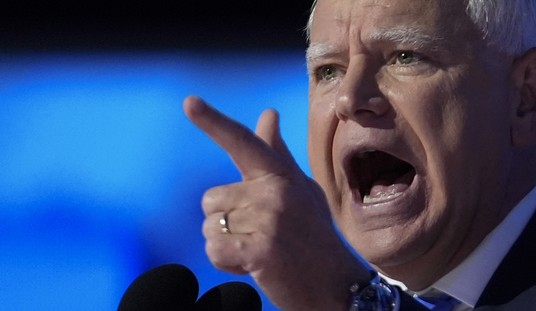WASHINGTON – House and Senate negotiators have arrived at a two-year budget deal that modestly increases federal spending while offering lawmakers an opportunity to avoid another governmental shutdown.
Essentially, the deal announced Tuesday by Rep. Paul Ryan (R-Wis.), chairman of the House Budget Committee, and Sen. Patty Murray (D-Wash.), chairwoman of the Senate Budget Committee, eases the across-the-board spending plan instituted by the process known as sequestration, imposed as part of a previous budget agreement.
The Department of Defense, already hit hard by sequestration cuts and facing an additional $20 billion loss in January, benefits under the plan as do a handful of domestic programs. Spending overall for the 2014 fiscal year will go from $967 billion to $1.012 trillion, with an additional increase to $1.014 trillion in 2015.
The agreement would provide $63 billion in sequester relief over two years, split evenly between defense and non-defense programs. In fiscal year 2014, defense discretionary spending would be set at $520.5 billion and non-defense discretionary spending would be set at $491.8 billion.
The Bipartisan Budget Act of 2013 replaces $63 billion in automatic spending cuts by reducing spending in some targeted programs while increasing revenues without benefit of a direct tax increase. The plan extends a 2 percent cut to Medicare through 2023, two years beyond cuts contained in the Budget Control Act of 2011. The plan also increases airline ticket fees in an effort to offset security costs. Pensions for federal workers and military personnel will be cut.
Despite the spending increase the package manages to further reduce the budget deficit by $25 billion.
Both Murray and Ryan expressed optimism that their respective chambers will adopt the plan. The Republican caucus will have a chance to discuss it at their Wednesday morning conference meeting.
“This deal doesn’t solve all of our problems but I think it is an important step in helping to heal some of the wounds here in Congress,” Murray said. “Paul and I do have some major differences. We cheer for a different football team, clearly. We catch different fish. We have some differences on policy but we agree our country needs some certainty.”
Ryan expressed pride over the resolution, asserting that “it reduces the deficit—without raising taxes. And it cuts spending in a smarter way. It’s a firm step in the right direction, and I ask all my colleagues in the House to support it.”
The legislation fails to address several key issues. Some members of the budget conference committee hoped to include tax reform on the agenda and Democrats wanted to include a provision to extend federal unemployment benefits for another year. Neither made it into the final product. Nor did any attempt to repurpose the constant negotiations over the debt ceiling.
But the plan, should it pass both the House and Senate, will keep the government open beyond Jan. 15 – the day the current stopgap spending measure expires. And it offers a rare example of congressional bipartisanship.
Congressional conservatives, who are seeking deeper spending cuts without increasing taxes, generally reacted negatively toward the budget conference committee plan.
“I am concerned that this deal may be another missed opportunity by Congress to make the tough choices needed that will secure our long-term fiscal future,” said Sen. Dan Coats (R-Ind.). “I believe Congress needs to live by the budget levels it passed in 2011 or replace them with real, targeted spending reforms.”
Sen. Marco Rubio (R-Fla.) said the American public “deserves better than this.”
The proposed Ryan-Murray budget, Rubio said, fails to drastically reduce the nation’s debt or take steps to provide good-paying jobs, “making it harder for more Americans to achieve the American Dream. Instead, this budget continues Washington’s irresponsible budgeting decisions by spending more money than the government takes in and placing additional financial burdens on everyday Americans.”
Conservative groups immediately lined up against the pact. Tim Phillips, president of Americans for Prosperity, said the agreement is not just bad policy, it is bad politics.”
“The American people remember hard-won bipartisan spending limits set by the sequester and are not pleased to see their conservative representatives so easily go back on their word to rein in government over-spending,” he said. “This is about protecting the pocketbook of average Americans, not about shutting down the government or refusing to compromise. Lawmakers should simply continue an existing, bipartisan agreement that has already reduced overspending and is not compromising our modest economic recovery.”
That group was joined by Freedomworks. President Matt Kibbe maintained that “it’s disingenuous for Republicans to surrender the only real spending reforms accomplished under the Obama Administration and call that a deal. Immediate spending and revenue hikes without long-term reforms to spending and entitlement programs isn’t a deal, it’s just another manufactured, govern-by-crisis shakedown.”
Meanwhile, House Speaker John Boehner (R-Ohio) received a letter from 18 lower chamber conservatives, led by Rep. Mick Mulvaney (R-S.C.) demanding that spending levels remain at sequestration levels.
“What has become clear is that Democrats are not interested in solving the problems created by the sequester: they are only interested in using the threat of the cuts as leverage to increase spending across the board, to increase our national debt, and to raise taxes and fees,” the letter said. “Or worse, they are interested in using feigned concern over national defense in order to distract attention from the disaster that is Obamacare.”
Regardless, Boehner expressed support for the compromise, saying it “represents a positive step forward by replacing one-time spending cuts with permanent reforms to mandatory spending programs that will produce real, lasting savings. This framework is consistent with sequester replacement legislation passed by the House in 2012. It would also help to further reduce the deficit without tax hikes that would hurt our economy.”
The White House also lent its support, with President Obama calling it “a good first step.”
“This agreement replaces a portion of the across-the-board spending cuts known as ‘the sequester’ that have harmed students, seniors, and middle-class families and served as a mindless drag on our economy over the last year,” Obama said. “It clears the path for critical investments in things like scientific research, which has the potential to unleash new innovation and new industries. It’s balanced, and includes targeted fee increases and spending cuts designed in a way that doesn’t hurt our economy or break the ironclad promises we’ve made to our seniors. It does all this while slightly reducing our deficits over time – coming on top of four years of the fastest deficit reduction since the end of World War II.”
The House, which is scheduled to wrap up work this week for the Christmas break, could take the measure up by Thursday.









Join the conversation as a VIP Member